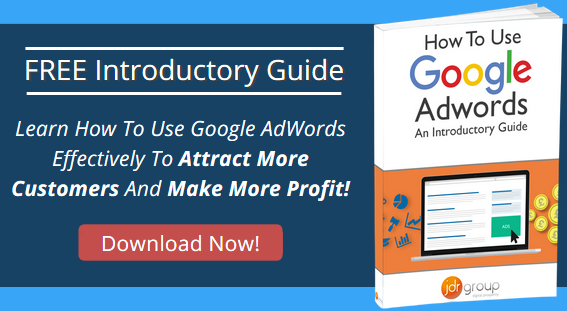Why Use A PPC Agency To Outsource Google Adwords Management
When considering using a PPC agency or managing your Google Adwords campaign in-house, for many businesses it comes down to a simple choice:
Do you want: A well-run, constantly improving campaign that your customers pay for?
Or: an expensive, time consuming and confusing distraction?

There are 4 major benefits to hiring a PPC agency to look after your campaign:
1) It saves you time
A Google Adwords campaign takes time to set up – you have to research keywords, write adverts and create the campaign settings.
But once the campaign is set up, it doesn’t end there - once the campaign is up and running it needs regular monitoring and management.
For example, some ads will work better than others – you need to consistently write and test new ads, split testing in each ad group to improve your click through rate (CTR) and reduce your cost per click (CPC). You’ll also need to monitor what your competitors are doing, optimise your keyword bids, and track and constantly improve your keyword quality scores.
You’ll need to track which keywords perform best, which devices work best, what times of day or days of the week are best for conversions, which ad extensions work best and which locations are most profitable. And you have to use this information to adjust your bidding strategy and campaign settings to maximise results.
All of this takes TIME every day, or every week.
And if you are not an expert, it will take longer. If you or a member of your team are spending just a few hours a week on Adwords then I encourage you to work out the cost of that each month – multiply total time spent by the hourly rate of the individual doing the work. It adds up.
2) It stops you wasting money
We find the average Adwords account is wasting anywhere from 20% right up to 60% of their budget. There are three main causes:
Firstly, when you choose keywords; Unless you are careful with your keyword match types or negative keywords Google will show your ads whenever someone searches for that keyword. But they will also show you for any related keywords. Take, as an example a commercial air conditioning company we worked with. For the keyword ‘air conditioning installation’ Google showed their ads for the following phrases:
|
In other words, they were paying to advertise for people looking for jobs, for car or caravan air conditioning and for people looking for wiring diagrams!
When we reviewed the account, we found that approximately 34% of their total Adwords budget was being wasted on irrelevant keywords!
Google does not make it easy to find this information or to do something about it unless you know what you are doing.
So this result is not because they put the wrong keywords in, but simply because the settings were wrong and the account wasn’t being managed properly. It's easy to set up an Adwords campaign, but it's not easy to stop yourself from wasting money like this.
The second way people lose money is by not tracking conversions – when set up properly, monitoring conversions directly through the Adwords platform means you can see which keywords work and which ones don’t. It helps you find new keywords, put more budget into well performing words and discard or change bidding strategy on poorly performing ones.
It's a small percentage of accounts that have conversion tracking set up, and those that do rarely monitor it and use the information to make good decisions about the campaign.
The third way people lose money is by having poor keyword quality scores. How much you pay per click is based on two factors: the price you are prepared to bid per click, and your quality score. If your quality score is low, then you have to pay more per click. If your quality score is high, you’ll pay less.
Good Adwords management improves your quality scores and reduces the amount you have to pay per click – therefore, you get more clicks, more conversions and more customers from the same Ad spend.
3) You’ll get better results
When we work on an Adwords campaign, our goal is simple; to make it a money machine for our client. In other words, to get to a point where we can consistently spend £5 on Ads to make £10 back for our client. Once an Adwords account has reached this point you can just keep scaling it up – the more £5’s you spend, the more £10’s you get back.
This is done by calculating the average value of a new customer (how much an average customer will spend with you), and then comparing that with the cost per acquisition, or CPA (how much you have to spend on ads to get a new customer).
When you outsource your Adwords management to an agency like JDR, the goal is to reduce CPA to a point where your customers are, in effect, paying for your marketing from the profit you make in the extra sales from the new customers.
4) Take advantage of new features
Google Adwords is constantly changing. In 2013 alone there have been two major developments with Adwords. The first is the transition to Enhanced Campaigns – read more about that here. The second is to make all product listings part of Adwords and to stop them being free. For E-commerce businesses this was a ground breaking development, if you were used to getting lots of traffic from free product listings you now have to learn about, and spend money on Google Adwords.
Add strategies like remarketing and display advertising into the mix, and you have a set of compelling reasons to employ a PPC agency. As I said earlier in the article, it comes down to a simple choice:
Do you want: A well-run, constantly improving campaign that your customers pay for?
Or: an expensive, time consuming and confusing distraction?
Article by Will Williamson
photo credit: wouter_kersbergen via photopin cc

